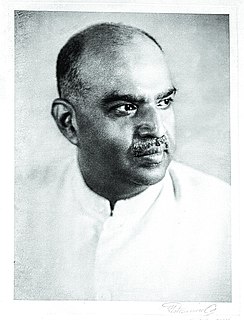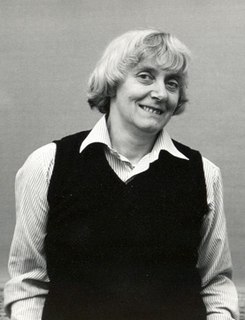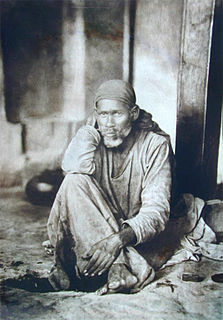A Quote by Erwin Schrodinger
It seems plain and self-evident, yet it needs to be said: the isolated knowledge obtained by a group of specialists in a narrow field has in itself no value whatsoever, but only in its synthesis with all the rest of knowledge and only inasmuch as it really contributes in this synthesis toward answering the demand, "Who are we?"
Related Quotes
What we deplore is not that the gate of western knowledge was thrown open to Indians, but that such knowledge was imported to India at the sacrifice of our own cultural heritage. What was needed was a proper synthesis between the two systems and not neglect, far less destruction, of the Indian base.
First, my people must be taught the knowledge of self. Then and only then will they be able to under-stand others and that which surrounds them. Anyone who does not have a knowledge of self is considered a victim of either amnesia or unconsciousness and is not very competent. The lack of knowledge of self is a prevailing condition among my people here in America. Gaining the knowledge of self makes us unite into a great unity. Knowledge of self makes you take on the great virtue of learning.
We develop all our sciences, archeology, cosmology, psychology, we tabulate and classify and cling to our sacred definitions, our divisions, without any attempt to synthesis, without the humility to see that these are only parts of a total knowledge. ... But somehow we ought to be able to keep the idea of the totality of experience and knowledge at the back of our minds even though the front's busy from morning til night with the life cycle of the liver fluke.
In order to write about the machine you have to know it, to live with it, to love it (or hate it). I think that true writing could be done on industrial subjects by people who work in industry, who are firmly linked with it. But ... and here is the opposite 'but', the technology of literary craftsmanship is itself a very fine and complex matter. Qualified specialists from industry prove themselves dilettantes in the field of literature. The needed synthesis is not yet in sight.
The process of inner self-examination brings about a knowledge that is as rigorous and supported by evidence as anything science has to offer. At the same time, this point of view redefines faith as a knowledge that is attained not only by intellectual means, but also through the rigorous development of the emotional side of the human psyche. Such emotional knowledge is unknown to the isolated intellect and has therefore been mistakenly labeled as "irrational."
Self-knowledge is not the knowledge of a dead self, self-knowledge is the knowledge of the process of the self. It is an alive phenomenon. The self is not a thing, it is an event, it is a process. Never think in terms of things, the self is not there inside you just like a thing waiting in your room. The self is a process: changing, moving, arriving at new altitudes, moving into new planes, going deeper into new depths. Each moment much work is going on and the only way to encounter this self is to encounter it in relationship.
I had always insisted that a good education was a synthesis of book learning and involvement in social action, that each enriched the other. I wanted my students to know that the accumulation of knowledge, while fascinating in itself, is not sufficient as long as so many people in the world have no opportunity to experience that fascination.
Even those who have desired to work out a completely positive philosophy have been philosophers only to the extent that, at the same time, they have refused the right to install themselves in absolute knowledge. They taught not this knowledge, but its becoming in us, not the absolute but, at most, our absolute relation to it, as Kierkegaard said. What makes a philosopher is the movement which leads back without ceasing from knowledge to ignorance, from ignorance to knowledge, and a kind of rest in this movement.
It matters, it matters very much, what each of us chooses to do. The journey toward self-discovery and self-knowledge is not only life's highest adventure, but also the only way to transform society from one based on self-centeredness and compulsory compassion to one based on service and mutual responsibility.




































